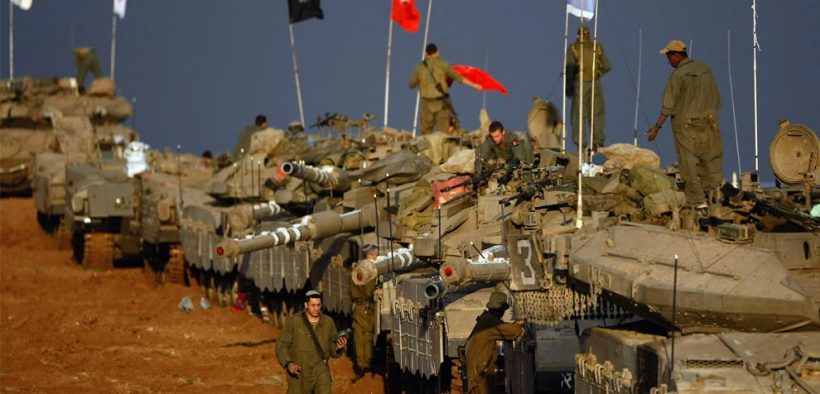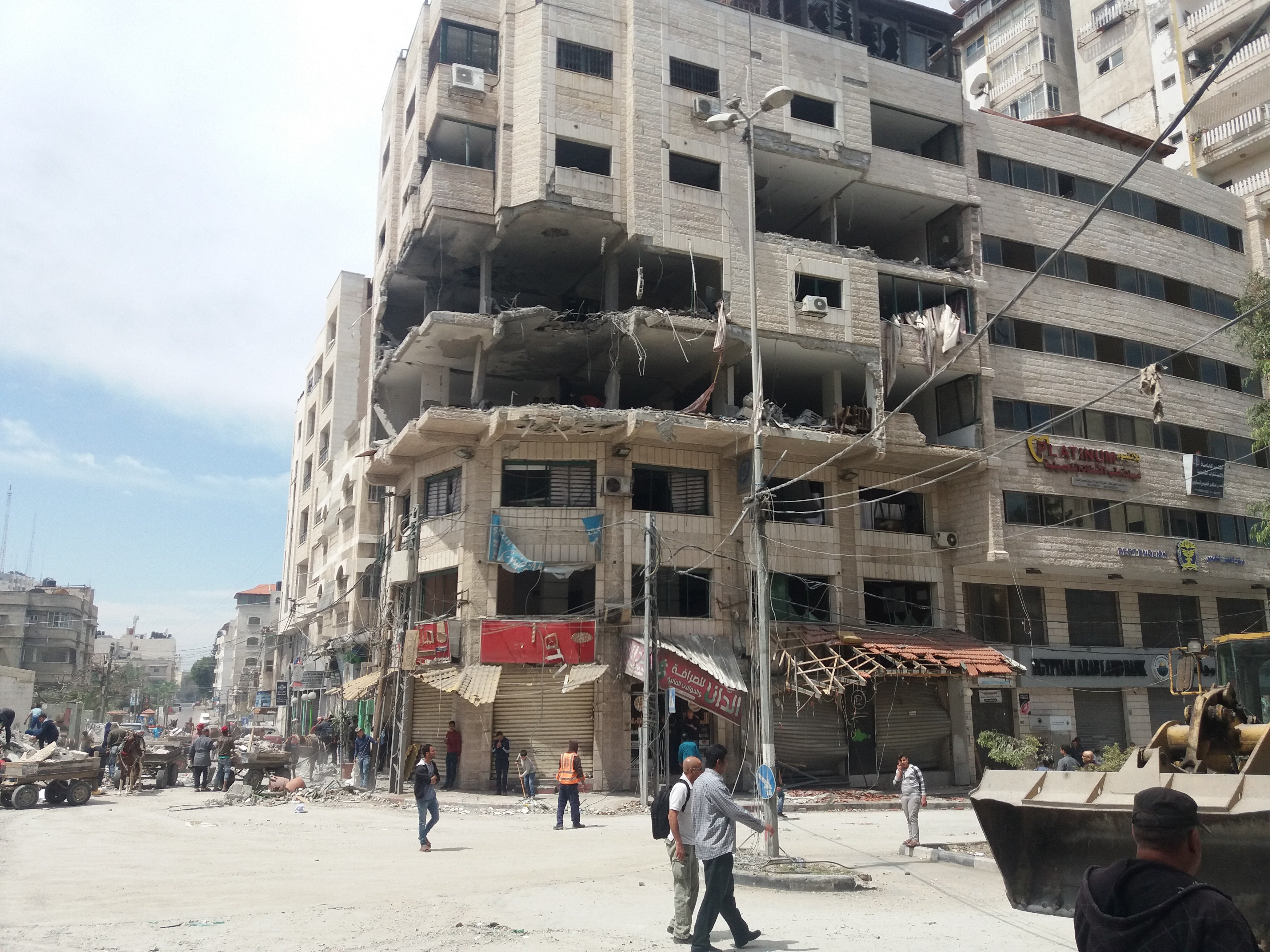Israel TV Claims Six Month Truce Reached, But Officials Deny It

Both Israel and Hamas are denying a report from Israeli TV on Monday that a six-month truce had been reached between the two factions.
Israeli TV channel 12 reported on Monday that both Hamas and Israel agreed to a six-month truce, provided that Palestinians stop their border protests, protests that have been going on since March 30, 2018, and which Palestinians call the Great March of Return.
However, on Tuesday, both the ruling Hamas party in Gaza and the Gaza-based major armed resistance faction, the Islamic Jihad group, refuted Israeli media leaks that Israel and Gaza-based resistance groups have reached a six-month truce achieved under Egyptian mediation.
Hamas’ spokesperson in Gaza, Fawzi Barhoum, was quoted as saying that there has been no agreement on a short-lived truce with the Israeli occupation and that what has been reached so far is merely a ceasefire.
A spokesperson for the Islamic Jihad group in Gaza, Dawood Shehab, also told Arab media outlets on Tuesday that no such a deal had been concluded with the Israeli occupation but that the resistance was committed to a ceasefire after a recent escalation of violence, in return for an Israeli commitment to previously-reached Egyptian-brokered understandings.
One of the conditions of the ceasefire deal reported by the Israeli TV channel was that the ruling Hamas party make sure Palestinians stay 300 meters away from the border fence with Israel.
Israel also denied reaching any kind of six-month truce. Although, Israel announced on Tuesday that it expanded the fishing zone off the coast of Gaza from 12 nautical miles to 15 nautical miles.
A statement released by the Israeli army coordinator of the army’s activities in the occupied Palestinian territories (COGAT), Brig. General Kamil Abu Rukon, read that the expansion of the fishing zone is intended at preventing a humanitarian crisis in the coastal enclave.
Recent Escalations
During the latest round of fighting between Gaza-based resistance factions and Israel in early May, the Israeli army closed the Gaza coast and ordered the closure of commercial border crossings. Shortly after the violence, Israel reopened the crossings and allowed fishing off the coast of Gaza.
The weekend of violence killed four Israelis and 25 Palestinians including women and children with about another 150 Palestinians injured. The majority of the casualties were civilians including women and children. Hundreds of Palestinian buildings and facilities were also either partially or completely destroyed.
Gaza rockets caused the four Israeli fatalities and caused some damage to Israeli properties, south of Israeli. According to the New York Times, Israel reported most of the rockets launched from Gaza were intercepted by Israel’s “Iron Dome” defense system or had landed in open fields.

One of the buildings that Israeli warplanes have striken, in Gaza City. The building involves the Anadol Turkish News Agency- (Photo by Rami Almeghari)
The recent spate of cross-border attacks was considered the deadliest and most severe escalation of violence since the 2014 Israeli-Gaza War, which left large-scale destruction in the coastal territory.
In response to news of ceasefire, organizers of the Great March of Return, insisted that their border peaceful protests will continue unabated until the 12-year-Israeli blockade of Gaza is lifted, once and for all.
For over a year, Egyptian and United Nations mediators have been intensively involved in mediation efforts to stop all forms of violence and prevent a large-scale escalation between Palestinians and Israelis. However, no signed commitments by either side, have been secured.
Armed resistance groups in Gaza demand the lifting of the Israeli blockade and the reviving of the devastated Gaza economy as a pre-condition for reaching a temporary truce with Israel.
Timing of the Israeli TV Announcement
Asked by Citizen Truth as to what is the significance of such an announcement for a temporary ceasefire, Gaza-based political analyst, Hassan Abdo, believed that the announcement could signal a political crisis in Israel.
“I believe that the media leaks about a ceasefire deal are meant to back up Israeli Prime Minister Benjamin Netanyahu – who has failed so far to form a coalition government in the face of the Likud party bloc, chaired by former defense minister, Avigdor Liberman”.
Abdo told Citizen Truth that if Netanyahu continues to fail to form a government, elections in Israel could be held again. “Liberman, who has objected to Netanyahu’s policy for Gaza and has called for a tougher action, mainly extrajudicial killings of Palestinian resistance operatives or leaders, could mobilize against Netanyahu and for the sake of re-elections,” said analyst Abdo.
A Way Out?
“Hamas makes a mistake by refusing a ceasefire deal that is sustainable. I can understand that this refusal is aimed at avoiding showdown between Hamas and it’s popular base in the territories, given the fact that Hamas never recognizes Israel. I believe that the way out is that Hamas should go to direct talks with Israel, under international patronage,” said Gaza-based political analyst, Naji Albatta.
Albatta added that all underway indirect talks between Hamas and Israel are aimed at alleviating the harsh conditions across the Gaza Strip.
“I believe that the understandings, reached so far, are prelude to longer-term truce deals, starting from 3 to 10 years. I believe that Israel is facing a political crisis, concerning forming a government. On the other hand, Palestinians are facing a crisis; Hamas can not hold responsibility for the whole situation, alone and the Palestinian Authority in Ramallah, can not either hold such a responsibility. Both Hamas and the Palestinian Authority, should first and foremost reach a unity deal,” Albatta told Citizen Truth.
Unified Gaza Armed Resistance Factions?
Over the past twelve years, Israel has held Hamas solely responsible for the outbreaks of violence in the region, as Hamas has been in full control of the Gaza Strip.
Since last March, Gaza has seen several small-scale and short-lived Israeli attacks, which Israel says have been in response to rocket fire from Gaza into nearby Israeli towns.
One of the attacks occurred in early April, a few days before the Israeli elections, when a Gaza rocket landed in the Israeli city of Tel-Aviv. By the election, Hamas said the rocket was fired by mistake.
Although resistance factions in the Gaza Strip have been able to operate within a unified umbrella when it comes to escalation on the ground, analyst Albatta believed that a politically united front may be an obstacle to a sustainable truce deal with Israel.
“Some armed resistance factions operate within their own agendas that may conflict with the ruling Hamas’, therefore, such factions could block any ceasefire agreement between Israel and the ruling Hamas party,” Albatta explained.















